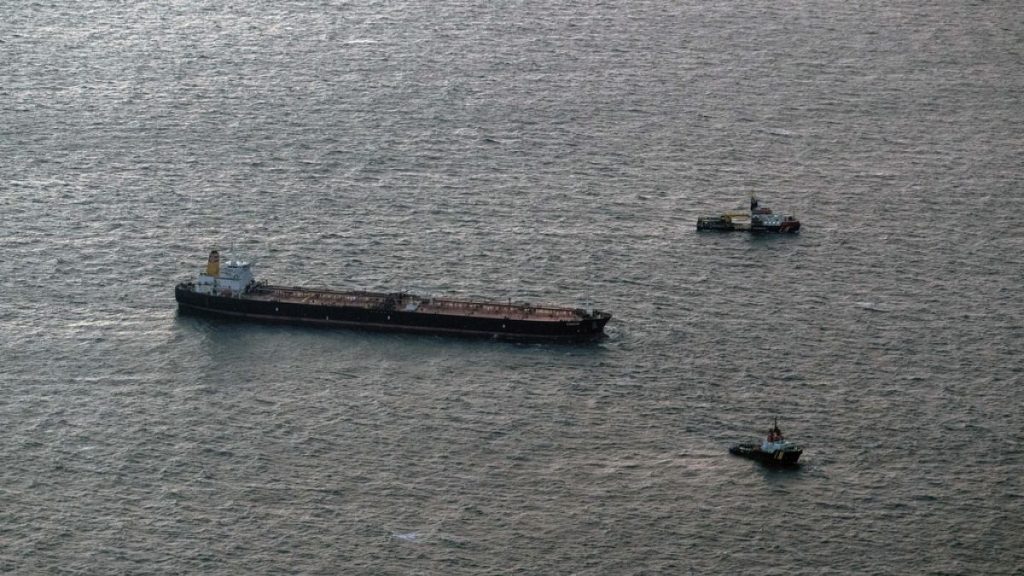The adrift oil tanker Eventin in the Baltic Sea has sparked concerns about Russia’s alleged attempts to circumvent sanctions imposed after its invasion of Ukraine. The Panamanian-flagged vessel, suspected of carrying 99,000 tons of Russian oil destined for Egypt, drifted for several hours in heavy seas off Germany’s coastline before being towed to safer waters near the island of Rügen. German Foreign Minister Annalena Baerbock labeled the incident a security and tourism threat, highlighting the broader implications of Russia’s actions beyond the immediate war in Ukraine.
Greenpeace identifies the Eventin as part of a “shadow fleet” – a collection of aging tankers allegedly employed by Russia to evade sanctions and maintain oil revenue flow. These tankers, often operating under flags of convenience, are said to facilitate the covert transport of Russian oil, enabling Moscow to bypass international restrictions and continue profiting from its energy resources. This incident sheds light on the intricate web of maritime operations employed to circumvent sanctions, emphasizing the challenges in effectively enforcing these measures.
The Eventin incident underscores the multifaceted nature of Russia’s challenge to European security, extending beyond military aggression to encompass sabotage, disinformation, and now, the alleged use of unsafe vessels. Minister Baerbock’s statement emphasizes the interconnectedness of these threats, portraying the adrift tanker not merely as a maritime incident, but as a component of a broader strategy to destabilize and undermine European interests. The precarious condition of the tanker, as implied by its drifting state, further amplifies anxieties about potential environmental disasters and economic disruption.
The incident raises broader questions about the efficacy of sanctions and the strategies employed to circumvent them. The existence of a “shadow fleet” suggests that traditional sanctions targeting specific vessels or companies may be insufficient to curb illicit trade. Moreover, the use of aging tankers raises critical safety and environmental concerns. These vessels, often operating with less stringent maintenance standards, pose a significant risk of oil spills and other maritime accidents, endangering fragile marine ecosystems and coastal communities.
Beyond the immediate environmental and security implications, the Eventin incident serves as a microcosm of the broader geopolitical tensions surrounding the war in Ukraine. It highlights the complex interplay of economic interests, international law, and national security, exposing the vulnerabilities of global supply chains and the challenges of enforcing international sanctions. The incident further underscores the potential for seemingly isolated events to escalate tensions and exacerbate existing conflicts.
The Eventin incident also serves as a wake-up call regarding the need for enhanced maritime surveillance and stricter enforcement of international regulations. The ability of a potentially unsafe tanker to navigate international waters undetected underscores the gaps in current monitoring systems and the need for greater international cooperation to prevent similar incidents. The incident emphasizes the importance of proactive measures to identify and track vessels suspected of illicit activities, thus preventing them from posing a threat to both environmental security and geopolitical stability. Furthermore, it highlights the need for robust contingency plans to address such situations swiftly and effectively, minimizing the potential for environmental damage and economic disruption.














